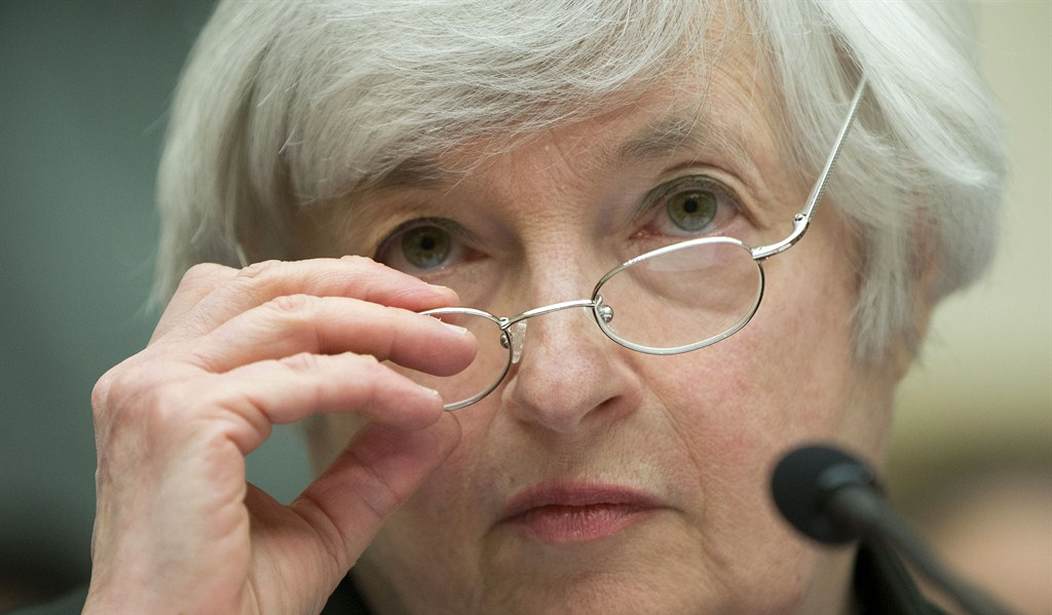WASHINGTON - A bunch of economic numbers from the government this week, which should be taken with a large grain of salt, were expected to show the economy was doing much better in the past three months.
Well, we've seen these periodic, fragmentary numbers many times before, only to see the economy continue to slowly slog along at its painfully lackluster, jobs-challenged pace for the past six and a half years now.
President Obama will recite the exaggerated economic numbers that his cherry-picking speech writers select to prove that he's brought the economy back from the bring of recession. But the majority of the American people, the best barometer of how the economy is really doing, don't think so.
Only about four in 10 voters said they approved of his handling of the economy, according a Wall Street Journal- NBC poll conducted this month.
When asked to describe their views on the economy, two-thirds said they were dissatisfied or very dissatisfied with the economy and the general direction of the country.
Notably, Obama's overall approval rating dropped to a 40 percent low, the worst public rating of his presidency, the polling report said.
The Commerce Department was expected to announce Thursday that the economy grew by 4.0 percent in the second quarter (April to June), according to an earlier estimate by the Bureau of Economic Analysis (BEA). And no doubt the nightly news shows will report that number as new evidence that the economy has regained its full health and vigor.
But at closer look at the longer term economic numbers suggests that would not only be premature, but a mistaken prognosis of an underperforming, roller coaster economy whose health cannot be reliably measured in three-month spurts.
Recommended
A more accurate reading of our economy's health is in its annual growth rate, and those rates have been weak and underwhelming throughout Obama's presidency.
Let's start with the disastrous first quarter growth rate that showed the economy didn't grow at all. It shrank by a a revised 2.1 percent.
That would mean the economy was growing at a rate of between 2 percent to 2.5 percent in the first six months of this year, economists said. A weak economic growth rate, no matter how you slice it.
U.S. manufactured goods rose last month rose by 22.6, largely driven by aircraft and auto sales. But subtract this always volatile transportation category, and durable goods orders actually fell 0.8 percent in July.
And a growing number of economic forecasters do not expect the sluggish economy to get a great deal better, or to make a deep dent in the nation's anemic employment numbers.
The latest evidence of lowered expectations came from Federal Reserve Board Chairwoman Janet Yellen in her don't-break-out-the-champagne-
Nearly seven years into Obama's interminably long and impotent attempts to get the economy growing again at full throttle, Yellen told the high level group of economists that the economy "still needs time to fully recover," as one news report put it.
In fact, it may need a long time, maybe a very long time, Yellen told the elite economic policymakers.
There were two views at the Jackson Hole meeting: One side called for raising interest rates to ward off inflation, which few economists see occurring in a slow economy.
On the other side "is a majority that thinks a near-term rate hike would stifle growth and, with it, any chance of restoring health to the labor market," reported the New York Times. "That group includes Janet Yellen… and most members of the Fed's policy committee."
"The economic evidence indisputably favors Ms. Yellen, who has indicated that rate increases should not begin until sometime next year, at the earliest. It will take until then to be able to say with confidence whether recent improvements in growth and hiring are sustainable," the Times said in a surprisingly bearish review of the Obama economy's prospects.
Right now, the nation's longterm economic future isn't looking so healthy. Forecasters, including the Fed's own analysis, project that the economy will grow at a sluggish 2.3 percent.
"That is too slow to reliably boost the number and quality of jobs and, as such, too slow to justify raising rates," the Times said.
As for the labor market, it still has "anemic" written all over it. Job creation has averaged 230,000 a month thus far this year, but this is well below the numbers needed to keep up with population growth and younger workers who are just entering the labor force.
This is where Yellen's major concerns about Obama's troubled economy have focused: the millions of workers who've dropped out of the labor force because they can't find full-time work, and thus are no longer counted among the unemployed; and a sharp increase in involuntary part-time workers among Americans who desperately need full time employment.
As a result, America's labor payroll has been shrinking under this president at an accelerating rate. The Gallup Poll says it has fallen to 45.3 percent of the population, a disturbing sign of the nation's job dearth and an economy in decline.
Wages, too, have been stagnant since the recession supposedly ended in 2009, with hourly wages rising at a meager 1.9 percent a year on average.
Unfortunately, millions of Americans do not live in the world of averages. Gallup says that nearly 40 percent of the people polled in their daily tracking surveys said they were "struggling" and 14.7 percent were "underemployed."So keep all of this mind when this week's fragmentary, incomplete economic numbers come out and the nightly news tells you that the Obama economy is doing better than ever.

























Join the conversation as a VIP Member